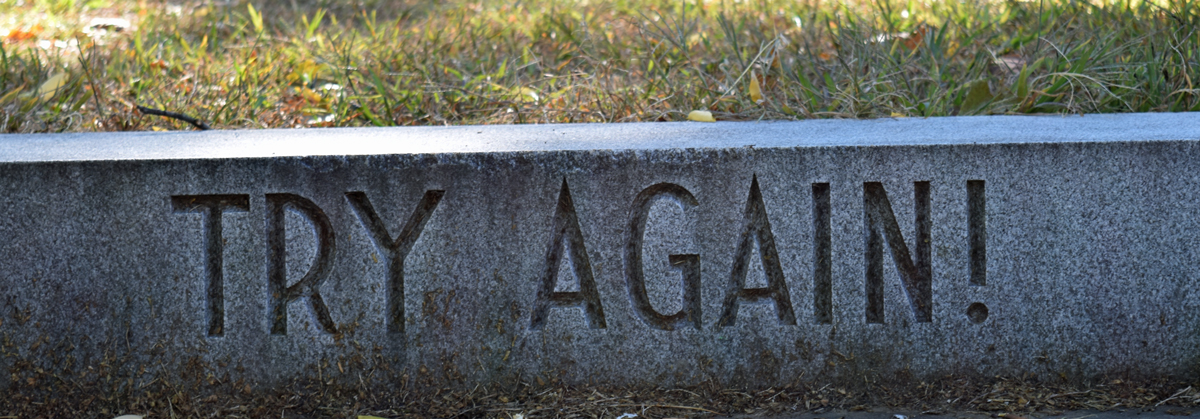Two Tales in Education
 Two stories from the education world caught my attention this week, and I feel that both are worth the time to read. The first story, Why Teachers Quit by Liz Riggs, is a cautionary tale from 2013 about teachers and burn-out. The second, Silicon Valley Courts Brand-Name Teachers, Raising Ethics Issues is by Natasha Singer of the New York Times. It is a warning for anyone who worries about the possible effects of corporate America's influence in schools and school materials.The Atlantic recently reposted Liz Riggs' 2013 article Why Teachers Quit which was originally printed in October 2013. Even with a 4-year time gap, this is an article that is relevant and worth reading for anyone interested in retaining educators. The turn-over rate cited in the article, 40-50%, refers to the numbers of teachers leaving the education profession within the first five years of their career. While I believe this attrition rate to be lower in 2017 thanks to strong induction and mentoring programs available to beginning educators, many beginning teachers continue to leave education for other fields.Although many of the teachers Ms. Riggs interviewed were from charter schools, the conditions which lead to decisions to leave education are often some of the same expressions of discontent heard now from both novices and experienced teachers. The responsibilities of educators don't end at the dismissal bell. Planning, assessing, writing reports - those workloads are often overwhelming and makes for an unhealthy and out-of-balance life.Even when one goes into education for all the best reasons, the reality of the profession can become overwhelming. With all of the emphasis on teacher quality, there continues to be a need to ensure that the extracurricular demands on talented educators are not overpowering.The second article, Silicon Valley Courts Brand-Name Teachers, Raising Ethics Issues, was recently published in the New York Times and describes a new trend in education: recruiting teachers to promote edu-products. While understanding that obtaining "free stuff" is a way for classrooms and educators to afford enhancements and the latest in bells and whistles, I think this pathway is a very slippery slope. It makes me more than a bit skeptical about the motives of corporate American forming relationships with educators to obtain favorable product placements.As a retired educator, I can still recall the disproportionate amounts of time spent each evening writing plans, pulling together materials, researching, contacting parents, and grading student work. I am not quite sure how Kayla Delzer, the third grade teacher chronicled in the Times article finds enough time to attend to teacher responsibilities; blog, tweet, and post on Facebook; and sleep. I wonder about the cost to her students. Is her objectivity in evaluating appropriate materials compromised? Are her students missing out when their expert teacher is away to promote these materials?Two tales for the week, both cautionary. Anyone out there listening?
Two stories from the education world caught my attention this week, and I feel that both are worth the time to read. The first story, Why Teachers Quit by Liz Riggs, is a cautionary tale from 2013 about teachers and burn-out. The second, Silicon Valley Courts Brand-Name Teachers, Raising Ethics Issues is by Natasha Singer of the New York Times. It is a warning for anyone who worries about the possible effects of corporate America's influence in schools and school materials.The Atlantic recently reposted Liz Riggs' 2013 article Why Teachers Quit which was originally printed in October 2013. Even with a 4-year time gap, this is an article that is relevant and worth reading for anyone interested in retaining educators. The turn-over rate cited in the article, 40-50%, refers to the numbers of teachers leaving the education profession within the first five years of their career. While I believe this attrition rate to be lower in 2017 thanks to strong induction and mentoring programs available to beginning educators, many beginning teachers continue to leave education for other fields.Although many of the teachers Ms. Riggs interviewed were from charter schools, the conditions which lead to decisions to leave education are often some of the same expressions of discontent heard now from both novices and experienced teachers. The responsibilities of educators don't end at the dismissal bell. Planning, assessing, writing reports - those workloads are often overwhelming and makes for an unhealthy and out-of-balance life.Even when one goes into education for all the best reasons, the reality of the profession can become overwhelming. With all of the emphasis on teacher quality, there continues to be a need to ensure that the extracurricular demands on talented educators are not overpowering.The second article, Silicon Valley Courts Brand-Name Teachers, Raising Ethics Issues, was recently published in the New York Times and describes a new trend in education: recruiting teachers to promote edu-products. While understanding that obtaining "free stuff" is a way for classrooms and educators to afford enhancements and the latest in bells and whistles, I think this pathway is a very slippery slope. It makes me more than a bit skeptical about the motives of corporate American forming relationships with educators to obtain favorable product placements.As a retired educator, I can still recall the disproportionate amounts of time spent each evening writing plans, pulling together materials, researching, contacting parents, and grading student work. I am not quite sure how Kayla Delzer, the third grade teacher chronicled in the Times article finds enough time to attend to teacher responsibilities; blog, tweet, and post on Facebook; and sleep. I wonder about the cost to her students. Is her objectivity in evaluating appropriate materials compromised? Are her students missing out when their expert teacher is away to promote these materials?Two tales for the week, both cautionary. Anyone out there listening?
 So, what would you say an unexpected by-product of ed reform might be? With loss of autonomy in what to teach when, emphasis on high-stakes standardized testing and little control over just about anything else in the educational day, teachers are leaving some districts for transfers to more affluent schools and for other careers.I mention this because it is challenging to teach in a gateway - or as the Pioneer Institute referred to it last week "middle" - city. And because the Lowell Schools are making an effort to diversify faculty and staff.
So, what would you say an unexpected by-product of ed reform might be? With loss of autonomy in what to teach when, emphasis on high-stakes standardized testing and little control over just about anything else in the educational day, teachers are leaving some districts for transfers to more affluent schools and for other careers.I mention this because it is challenging to teach in a gateway - or as the Pioneer Institute referred to it last week "middle" - city. And because the Lowell Schools are making an effort to diversify faculty and staff.